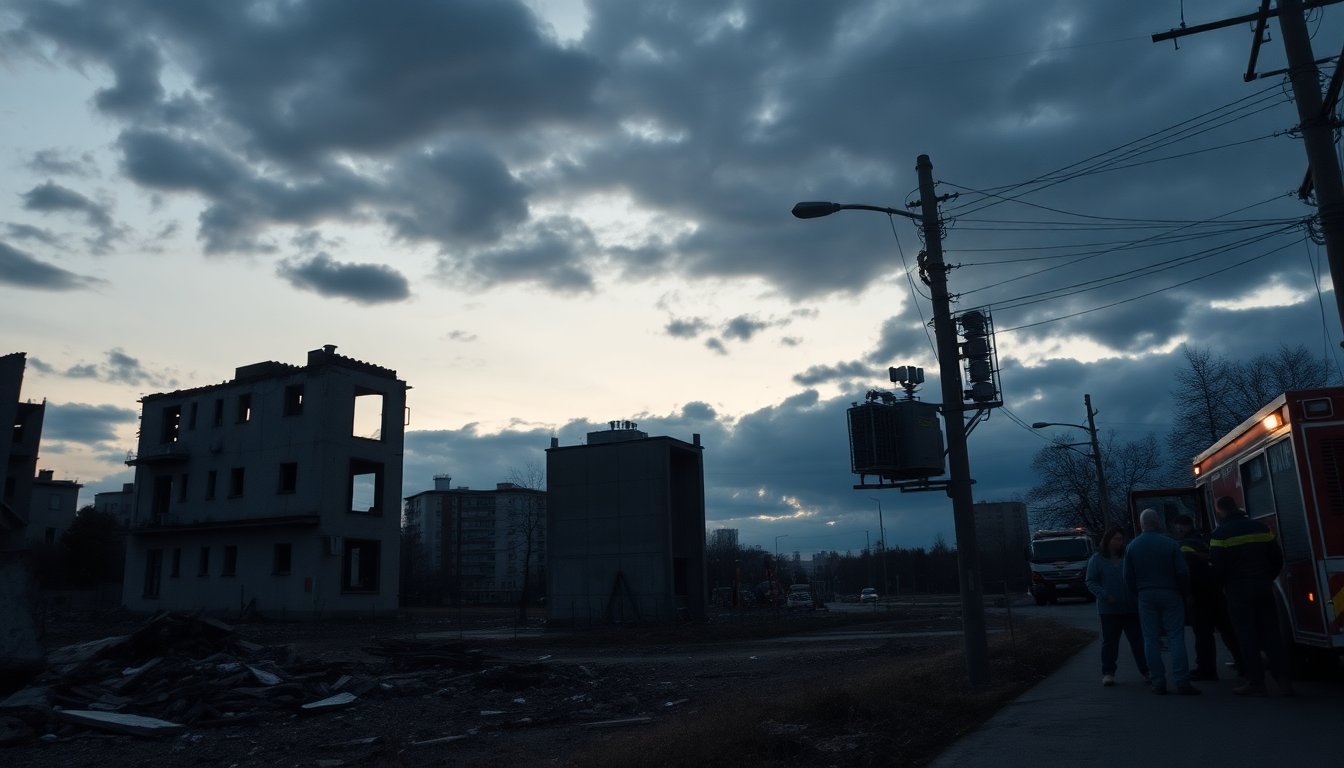Table of Contents
In recent days, Ukraine has experienced significant challenges to its energy supply due to intensified attacks from Russia. Ukrainian officials, including Energy Minister Svitlana Vasylivna Hrynchuk, confirmed that emergency power cuts have been implemented across multiple regions following a series of devastating strikes on the nation’s power plants. The situation has escalated since the onset of full-scale invasion, marking one of the most severe assaults on Ukraine’s energy infrastructure.
The state grid operator described the attacks as the most massive to date, unleashing a relentless barrage of drones and missiles aimed at crippling the country’s energy capabilities. As a direct response, Ukraine launched drone strikes targeting Russian energy facilities, impacting around 20,000 residents in the city of Voronezh.
Impact of the Russian strikes on Ukrainian energy
According to the Ukrainian energy authorities, the assaults began on Friday and continued into Saturday, resulting in a staggering collapse of the country’s power generation capacity, which plummeted to zero. The operator lamented the ongoing destruction, stating, “We lost everything we were restoring 24 hours a day!” This highlights the ongoing struggle of Ukrainian forces to maintain energy resilience amidst the chaos.
The primary areas of concern during these attacks have been the regions of Kyiv, Dnipropetrovsk, and Poltava. Furthermore, the campaign has not only targeted power plants but has also endangered vital resources, including heating and water supplies across multiple cities. The foreign minister of Ukraine, Andrii Sybiha, raised alarms about the threat posed to nuclear safety, particularly regarding the Khmelnytskyi and Rivne nuclear plants, calling for urgent international action from the IAEA.
Political ramifications in Kyiv
As the situation intensifies, President Volodymyr Zelenskyy faces mounting criticism for his handling of the energy crisis. Former energy executive Volodymyr Kudrytskyi, who previously led the state-owned Ukrenergo, has accused the government of failing to implement proactive measures to safeguard the energy sector from Russian attacks. He argues that the leadership is now scapegoating him for the failures they themselves should be held accountable for.
Kudrytskyi’s recent legal troubles, including charges of embezzlement linked to decisions made years prior, serve as a focal point in the political battle. This situation has sparked outrage among civil society and political opponents who accuse the government of using legal means to suppress dissent and silence criticism during a critical time for the nation.
Preparing for a harsh winter
The looming winter poses an additional threat, as power outages and insufficient heating facilities could lead to dire consequences for the population. Kudrytskyi warns that the government’s slow implementation of a decentralized energy strategy, which he proposed years ago, has exacerbated the current energy crisis. This plan aimed to reduce reliance on large, centralized power stations that are vulnerable to attacks.
Instead of adopting this strategy quickly, the Ukrainian government, according to Kudrytskyi, opted for alternative energy projects, delaying crucial reforms that could have fortified the energy infrastructure. The urgency for immediate action is underscored by the frequency of Russian missile and drone strikes, which have recently surged in intensity.
International response and future implications
As the Ukrainian government grapples with internal and external challenges, international partners are beginning to express concern. The situation has prompted calls from various think tanks and civil society organizations urging authorities to conduct impartial investigations into the ongoing political turmoil and to avoid politically motivated actions against professionals in the energy sector.
The international community watches closely as Ukraine navigates these treacherous waters, balancing the need for energy stability with the political ramifications of its internal disputes. The coming months will be critical as the nation braces for a potentially severe winter, testing the resilience of both the government and its energy infrastructure.


